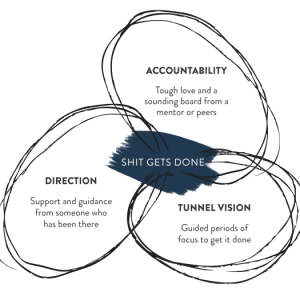What if I told you that you could improve your productivity by up to 40%? Would you listen? Would you even believe me? That is a pretty substantial increase. Before I explain how, let me put it into financial terms for you.
If you work for yourself and your average salary is, say £25k. That could be an extra £10k per year. If you are managing £50k per year for your time, imagine an extra £20k for spending the same amount of time at your desk? Seems insane right? Well, it’s actually pretty simple.
Multi-tasking. Something which has become something of a joke between sexes. We’ve heard them all before however there is some truth within all those stereotypes. Our brain isn’t able to concentrate on two or more things at once. We think we can and, like many, I have convinced myself in the past that I was good at doing this. My missus will certainly tell you otherwise and she is right.
Switching rapidly between tasks has a detrimental effect on the brain. Not only are our brains not capable of it, it actually causes quite a bit of harm. A study by Essex University revealed that by undertaking multi-tasking on a regular basis have lower grey-matter density in one particular region of the brain – known as the anterior cingulate cortex (ACC), the region notably responsible for cognitive and emotional control functions – compared to those who focus singularly on one task at a time.
It gets eve worse. The research supports earlier studies showing connections between high media-multitasking activity and poor attention in the face of distractions, along with emotional problems such as depression and anxiety.
Kep kee Loh says: “Media multitasking is becoming more prevalent in our lives today and there is increasing concern about its impacts on our cognition and social-emotional well-being. Our study was the first to reveal links between media multitasking and brain structure.”
The neural pathways and synapses can change based on our behaviours, environment, emotions, and can happen at the cellular level (in the case of learning and memory) or cortical re-mapping, which is how specific functions of a damaged brain region could be re-mapped to a remaining intact region.
But what exactly is classed as multi-tasking? Well the term multi-tasking is actually a misnomer. People can’t actually do more than one task at a time. Instead we switch tasks. So the term that is used in the research is “task switching”. The APA categorise it into the following:
- Performing two tasks simultaneously. This includes talking on the phone while driving or answering email during a webinar.
- Switching from one task to another without completing the first task. We’ve all been right in the middle of focused work when an urgent task demands our attention; this is one of the most frustrating kinds of multitasking, and often the hardest to avoid.
- Performing two or more tasks in rapid succession. It almost doesn’t seem like multitasking at all, but our minds need time to change gears in order to work efficiently.
Having trouble focusing? This could be the very reason why. Maybe it’s time to tackle things a little differently. Remember the thing about change is that it can seem alien at times. Read the Psychology Today article here for more information on how to implement change:
https://www.psychologytoday.com/blog/brain-wise/201209/the-true-cost-multi-tasking
So stop doing alt & tab while working. Shut down Facebook and Twitter and put your phone in your draw. Both your brain and your wallet will be better off for it.
“Do. Or do not. There is no try.” – Yoda



